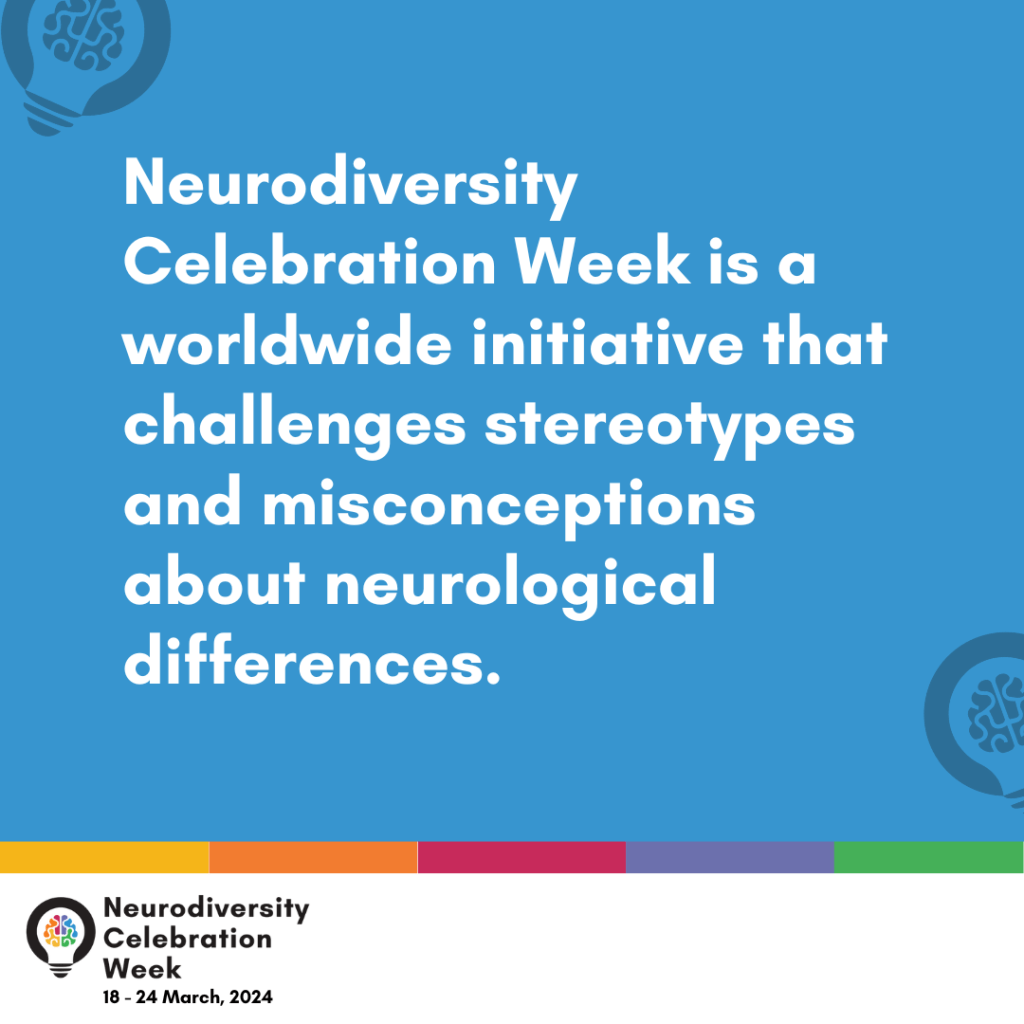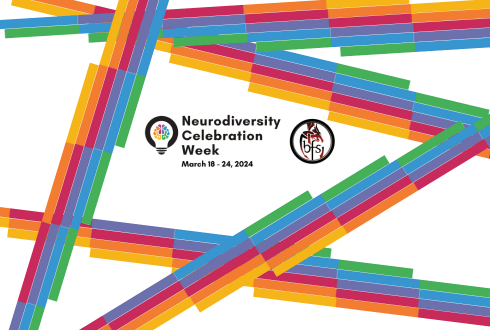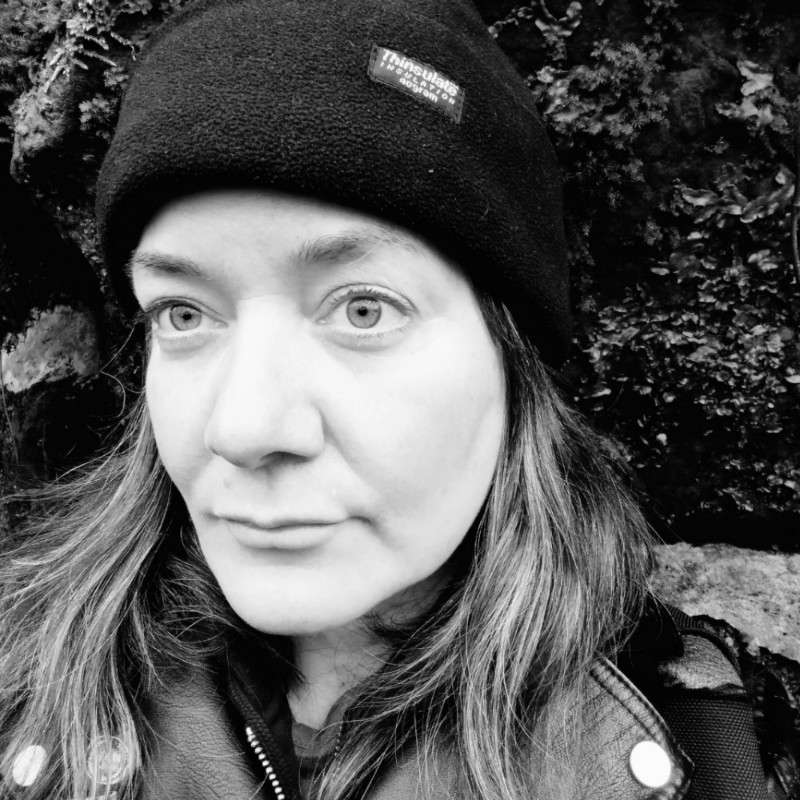With the UK celebrating Neurodiversity Week, BFS web admin E.M. Faulds has penned this piece about discovering her own neurodiversity and the impact it has on her writing.

“She’s away with the fairies.â€
That’s what they’d say about me. I had no clue I had any form of disability. I’d just get called “scatterbrained†or “space cadet†or “clutzâ€.
I was always daydreaming, or so people thought. I was easily distracted, had poor coordination. Everything I said was weird and uncool. I sucked at sports. I liked books and computers.
Of course, these days, I’d have had early support. But it took me until well into adulthood to even understand that there was something that wasn’t just a personal failing.
And man, those daydreams. I constantly built places of wonder for myself because real life was so disappointing.
“Beth does not live up to her potential.â€
Like a lot of girls who had undiagnosed ADHD, I did well in school. I was studious, curious, engaged. I couldn’t have ADHD, surely? That was just for loud kids who ran wild in the playground, not a good little girl who got good little grades (though, not ever good enough, of course).
After school my life derailed. Without the structure and strictness of that environment, it took me a long time to find my feet. I’ve had a lot of jobs. I could turn my hand to almost anything, which meant I had no idea what I wanted to do.
Except writing. But that wasn’t a real job.
“I have chosen not to publish your piece. It didn’t quite win me over, I’m afraid.â€
One of the things that bugs me about writing advice is the “write each day†stuff. Yeah, I’d love to. I’d love to be able to sit down at the computer for a good hour or two each day, chipping away at Works In Progress Mountain. Actually, it’s more of a range. And speaking of range, it’s hard to find a niche when every time you get something worthy of looking at, something new and shiny comes along.
I have trouble with plot arcs. And characters’ emotional logic. Because, through my eyes, people do extremely illogical things every day for no apparent reason. But you can’t write stories like that. At least, not when the editors are neurotypical, which most appear to be.
“I’m not the cool kid. I don’t fit in.â€
I spend a lot of time in a shower. It’s a sensory balm. Thoughts flow more easily when I’m relaxed. Alternatively, a looming deadline makes the hyperflow state more accessible, that state of being where I’ll look up and I’ve been sitting writing for six hours without pause. Or food or drink. Or using the toilet.
I wrote assistive technology into my story, “The World is What You Make of It†for ParSec magazine, issue #9. Euanthe is a researcher on a climate blasted earth who has holographic reminders to make sure she covers her physical needs. I would like one of them! Like her, I’d probably snooze the reminders far too often. She grew up in space when humans couldn’t survive on the surface anymore. She doesn’t understand why people would let the world’s ecology collapse. Neither can I.
“Beth has a strong sense of justice.â€
Yes, I was definitely one of those kids who complained about things being unfair.
I later learned that this is common among people who have ADHD and / or Autism. I’m not diagnosed with the latter, but I have traits. The two are sometimes called “sister syndromesâ€, often present together, in varying mixes.
“Life is unfair,†they’d say. But is it? Does it have to be? Or are these lies we tell ourselves to excuse our inaction? I would cry when they cut down trees or killed whales. I would be freaked out by war, how one human could kill another and be celebrated a hero. How Mutually Assured Destruction was ever an option. I didn’t understand why the warnings about climate change, the incontrovertible consensus of scientists were so easily pooh-poohed.
“Will you be my friend?â€
Finally, I found my people. The Glasgow SF Writers’ Circle and the BFS together have helped me more in the past few years than anyone else has. It took me a long time. I wanted to be a writer since I was six. I was around thirty-six by the time I found the support and community I needed. Since then, I’ve been published (though never enough), I’ve helped edit and feedback for other folks. I won an award. I estranged myself from toxic influences. I got stability. I got medication.
I wonder where I’d have been if I’d known what to do earlier. I should have started writing earlier. When I was still young and stupid. Back in the nineties, when a career as an author was still a viable one. I guess I can only try to offer the help I never got to others.
“Beth gets carried away too easily.â€
I love too hard, too easily. I get caught in a churning whirlpool of behaviours I can’t escape. I leave things unfinished. I forget. And sometimes I write in order to leave everything on the page. And reread it, reread it, reread.
I wrote a story about stalking and gender violence, not long after the horrific death of Sarah Everard. “One Murder Called†is a kind of detective story in my collection “Under the Moonâ€. Strangely, it is one that hardly anyone ever mentions except in terms of its bleakness, but underneath it all, in my opinion, it is also one of the most hopeful. It talks of encountering injustice and resisting it. It talks of solidarity, facing our fears, empathy.
One of the most enduring myths about certain strands of neurodivergence is that people who have it are unempathetic. I wish that one away, among all of them. It could not be further from the truth.
I look at the world, I see the stupidity of the human race as we hurtle towards the fire. Sometimes I wish I could live in those daydreams I built as a child. But life isn’t fair. Can’t it be? I still have hope that we can find our way. With solidarity, the will to face our fears. And empathy, above all.




3 responses to “For Neurodiversity Week: A Series of Comments About Beth”
Oh gosh, Beth – I felt all of that so much. They called me ‘Dolly Daydream’ at school. You have done so well to rise above the challenges you face.
Another who got labelled as a daydreamer here.
Also, it’s only just occurring to me now (under the pressure of Palestine) that I’ve always been furious about so many things, and that it’s perfectly OK to be furious about them – in fact it’s neurotypical people *not* being furious about them that’s the weird thing.
And yes, totally with you about empathy. If I don’t keep my empathy suppressed right down, it’s impossible for me to function in such a crappy and unfair world. Maybe it would be more correct to say that neurodivergent people may have a problem with regulating empathy levels?
That’s an interesting point and one which could take a lot of unpacking. I would suggest our empathy level regulation isn’t faulty per se? It depends on whether there is anything that could be called a “correct” response, which is subjective, at best. Some responses can be more effective in a given situation, such as keeping calm, not getting flustered, but only if that environment is dominated by others unwilling to listen to anyone who can’t do that. But to feel the way we feel, is not wrong.
A big takeaway I have come back with in my process of discovery with this is that I’m not “broken”, just different to societal expectations. And that was a very healing thought. But yes, it is hard to function in a society that works this way and I totally get the frustration and depression that causes. Strength to us all!